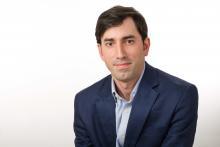Psychologists have traditionally focused on the past – what if that’s all wrong?
Psychologists have traditionally focused on the past – what if that’s all wrong?
For over a century, psychologists such as Sigmund Freud and Carl Rogers focused people’s attention on the past. And so when Mary struggles to maintain romantic relationships, she blames her past boyfriends for it. When Chris battles with addiction, he digs into his memories from childhood when he first felt humiliated. And when Saoirse doesn’t want to settle down, she attributes her free-spirited nature to being the youngest child in her family.
But what if these psychologists got it wrong? What if it is not the past but how we view the future that holds us back, preventing us from becoming the best versions of ourselves?
Psychological research has become obsessed with searching for the causes of mental ill health. However, an increasing body of research suggests that focusing on the future may protect us from depression and help us cope with stress more effectively. Sometimes, instead of dissecting the negative memories, we need to focus on a better understanding of how we view our future.
Many veterans, refugees and other people who have experienced trauma and have mental health issues spend little time thinking about the future. Instead, they are narrowly focused on the negative past.
Reflecting on a positive future can help us develop healthy relationships with the days to come and be more open to life and its opportunities. With this in mind, Julie Round (a qualitative researcher) and I have experimented with a small group of newly retired women, some of whom felt anxious when thinking about their future. They wondered what to do with the rest of their lives. Some even questioned their usefulness in this world, making them feel worse about themselves. When we asked them how they felt about setting goals, they had mixed emotions.
We began gently by helping them create a more positive future. Every day for four days, they wrote for 20 minutes about their “best retired self”. They imagined their dreams coming to fruition. Then, they explored the building blocks (such as home, family and leisure) to reaching their best future selves. They imagined that everything went according to plan, and were encouraged to think about what life would look like five years from now.
On the last day of the study, they imagined their 80th birthday using senses (for example, what did it smell like and who was there with them? – including people they had not yet met). Then we asked them to set goals for their lives ahead.
A week after the activity, they continued to experience mixed emotions. They needed time to process their future – all the things they looked forward to and the things they feared. However, a positive change was noted three months later, when they reported increased calmness and enthusiasm for the future. The image of them on their 80th birthday stayed with them, and they wanted to ensure they contributed to their friends, family and society just as they planned.
Four techniques to create a better future
Your “best retired self”, or a more generic “best possible self”, is just one of many activities you can engage in to help you create a more positive future to look forward to. Other activities include:
-
Anticipate savouring. Consider small and more significant things happening in the near or distant future. Imagine what it would be like if everything went well for you. Enjoy the positive feelings that follow.
-
Develop hope. Hope is about finding the will and the way towards accomplishing something we want in our lives. Try to identify what you would like your future to be and reflect on how to get there. Without a pathway, you may feel helpless about your situation.
-
Imagine all your problems solved. Project yourself into a time when all the issues you are struggling with today will be resolved. Now describe in detail how you achieved this.
-
Develop goals. Come up with a list of goals you would like to achieve. Now complete the Values in Action (VIA) survey of character strengths and identify how your strengths can help you achieve your meaningful goals.
Focusing on the future offers us choices and acknowledges that we have free will, and are not just a product of our childhood or other adverse life events. We have no say in our past, but we can create a better future if we choose to face it and enter it with confidence.
This does not mean we should live in denial. In fact, the opposite is true. We acknowledge that bad things have happened, but we also acknowledge that we want a promising future for ourselves and choose to focus our attention on creating it. Seeing it is a starting point to making it happen.
Jolanta Burke, Senior Lecturer, Centre for Positive Psychology and Health, RCSI University of Medicine and Health Sciences
This article is republished from The Conversation under a Creative Commons license. Read the original article.
"text/javascript" src="https://theconversation.com/javascripts/lib/content_tracker_hook.js" id="theconversation_tracker_hook" data-counter="https://counter.theconversation.com/content/182308/count?distributor=republish-lightbox-advanced" async="async">

















